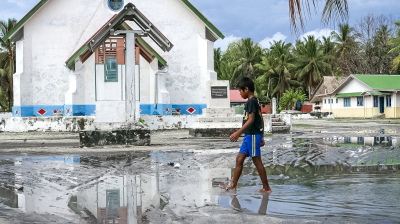2023 State of Climate Services for Health

As the world warms at a faster rate than at any point in recorded history, human health is on the frontline.
Climate change threatens to reverse decades of progress towards better health and well-being, particularly in the most vulnerable communities. Scientific know-how and resources can help redress the balance, but are not sufficiently accessible or utilized. WMO's annual State of Climate Services report this year focuses on health.
It highlights the need for tailored climate information and services to support the health sector in the face of more extreme weather and poor air quality, shifting infectious disease patterns and food and water insecurity.
The report, which includes input from more than 30 collaborating partners, features case studies from around the world showcasing how integrated climate and health action makes a very real difference in people's daily life. This includes early warnings systems for extreme heat, pollen monitoring to help allergy sufferers and satellite surveillance for climate-sensitive diseases.
Alerting the Nation: How Argentina's Heatwave Warnings Are Saving Lives
Heatwaves and The City
2023 State of Climate Services - Health
- Climate change threatens to reverse health gains
- Extreme heat causes greatest mortality of all extreme weather events/ hazards
- Climate information and services help manage and predict health risks
- Case studies showcase success stories around the world






